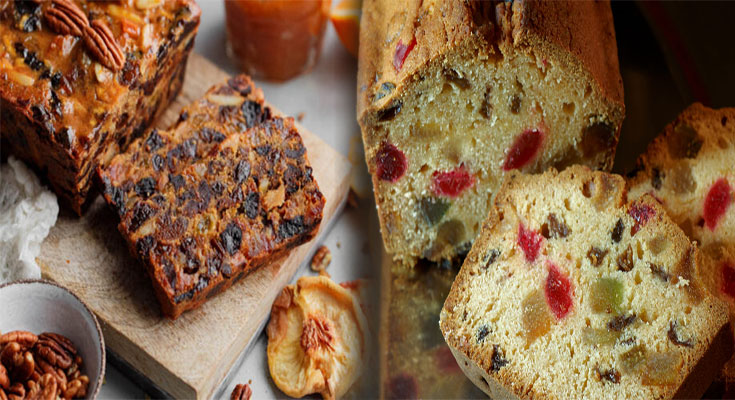Fruit cakes have been a beloved dessert for centuries, enjoyed during holidays, weddings, and special occasions. Over time, fruit cakes have evolved, with traditional recipes giving way to modern twists that cater to different tastes and preferences. Let’s explore the key differences between traditional and modern fruit cakes, as well as the unique flavors they offer.
Traditional Fruit Cakes:
Ingredients: Traditional fruit cakes are made with a rich assortment of fruits, nuts, spices, and alcohol. The fruits are typically soaked in brandy or rum for weeks, if not months, to enhance the flavors and textures.
Texture: Traditional fruit cakes are dense, moist, and packed with a variety of fruit pieces and nuts. The prolonged soaking of fruits in alcohol helps infuse the cake with a deep, rich flavor and keeps it moist for an extended period.
Flavors: Traditional fruit cakes are known for deep, complex flavors that develop over time. The combination of dried fruits like raisins, currants, and dates, along with spices like cinnamon, nutmeg, and clove, creates a warm and comforting taste profile.
Modern Fruit Cakes:
Ingredients: Modern fruit cakes often feature a lighter, more contemporary approach to ingredients. While fruits and nuts are still prevalent, modern versions may incorporate ingredients like citrus zest, honey, or alternative sweeteners.
Texture: Modern fruit cakes tend to be lighter and more sponge-like in texture compared to traditional fruit cakes. The focus is on creating a cake that is flavorful and moist without being overly heavy or dense.
Flavors: Modern fruit cakes come in a variety of flavors to suit different tastes. From citrus-infused cakes with a tangy kick to tropical fruit cakes with a hint of coconut, modern variations offer a wide range of flavor profiles that cater to diverse preferences.
Key Differences:
- Preparation Time: Traditional fruit cakes require significant preparation time due to the soaking of fruits in alcohol. Modern fruit cakes, on the other hand, may use alternative methods to achieve a similar depth of flavor without the lengthy soaking process.
- Consistency: Traditional fruit cakes are known for their dense and rich consistency, while modern fruit cakes often aim for a lighter and more delicate texture that appeals to modern palates.
- Flavor Profiles: Traditional fruit cakes lean towards classic, time-honored flavors, while modern fruit cakes experiment with unique combinations and flavor pairings to create a contemporary twist on this classic dessert.
Whether you prefer the timeless appeal of a traditional fruit cake or the innovative flavors of a modern variation, there is no denying the enduring popularity of this beloved dessert. Each type offers a distinct experience that showcases the evolution of a cherished classic into a modern culinary delight.
So, the next time you indulge in a slice of fruit cake, consider the rich history and diverse flavors that have made this dessert a staple in celebrations around the world. Whether you opt for the nostalgic taste of a traditional fruit cake or the fresh spin of a modern interpretation, one thing is certain – fruit cake will continue to be a delightful treat for generations to come.

